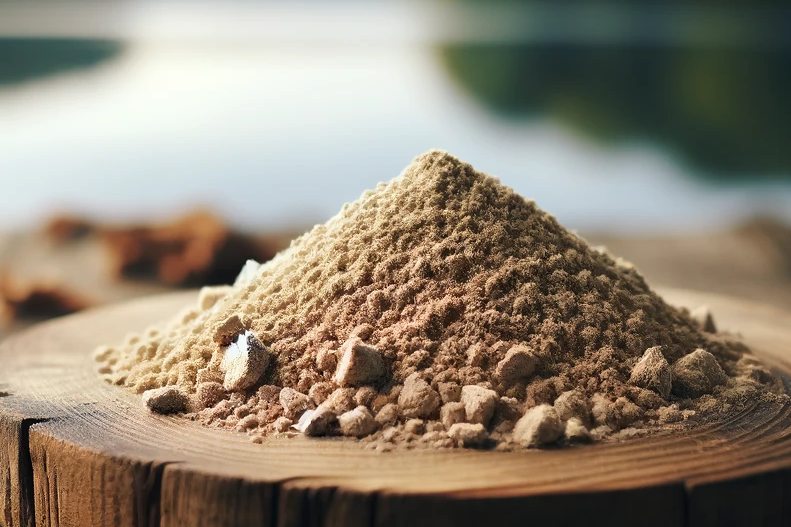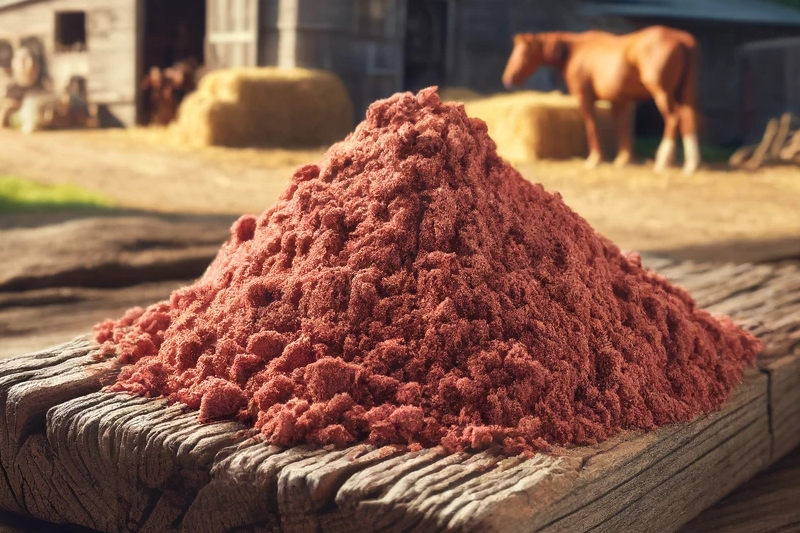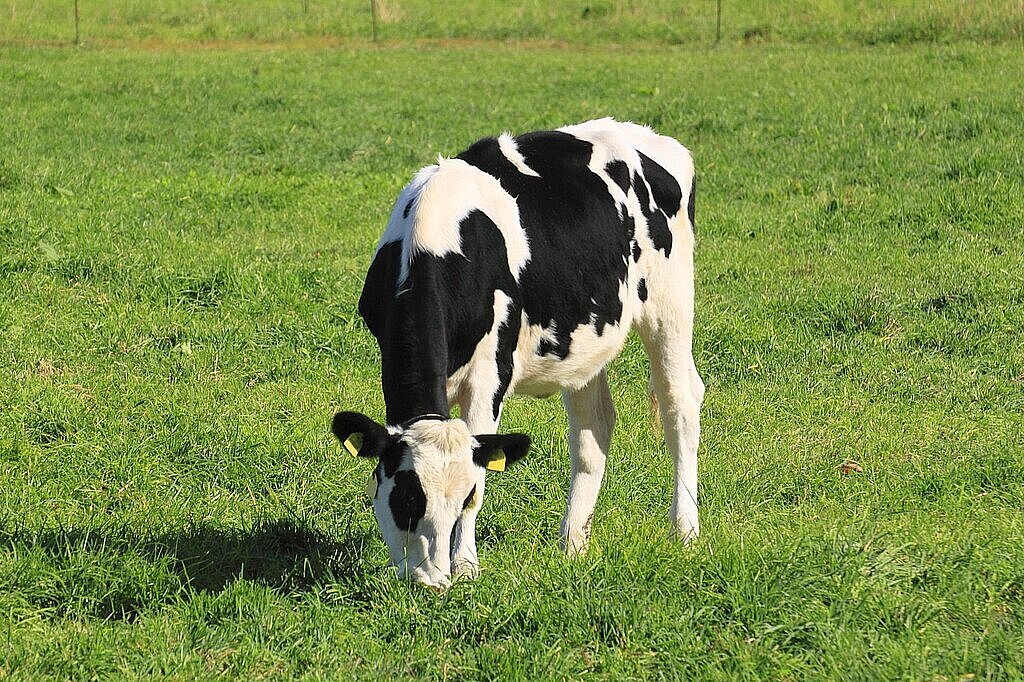Lamb semolina

What is lamb semolina?
Lamb semolina, also known as lamb meal, is a by-product of meat processing. It is made by drying fresh lamb meat and sometimes bones and grinding it into a fine powder. This powder is rich in proteins and other nutrients that are essential for dogs and is therefore a concentrated source of nutrients.
Nutritional profile and benefits
High quality protein source
Lamb semolina is an excellent source of protein, containing all the essential amino acids necessary for muscle development and maintenance, cell repair and the production of enzymes and hormones in dogs.
Rich in vitamins and minerals
It also contains a number of important vitamins and minerals. These include vitamin B12, which is important for nerve function and the formation of red blood cells, iron, which plays a central role in the blood's ability to transport oxygen, and zinc, which is important for the skin, coat and immune system.
Hypoallergenic
For dogs with food allergies or sensitivities, lamb semolina can be a good alternative to more common protein sources such as beef or chicken. Its hypoallergenic properties can help minimize allergic reactions and intolerances.
Possible disadvantages
Degree of processing
One criticism of lamb semolina could be the high degree of processing. The nutrients in highly processed ingredients are often harder for the body to recognize and use than those in fresh, unprocessed foods.
Quality and origin
The quality of lamb grits can vary depending on how and where the lamb has been reared and processed. It is important to look for products that come from animals that have been raised and fed in a species-appropriate manner to ensure the best possible nutritional quality.
Price
Due to the manufacturing process and high quality proteins, lamb semolina can be more expensive than other protein sources. For pet owners with a limited budget, this could be a disadvantage.
Lamb semolina as part of a balanced dog diet
Lamb semolina offers a range of nutritional benefits for dogs, including high quality proteins, essential fatty acids and important vitamins and minerals. Its hypoallergenic properties make it a valuable ingredient for dogs with food allergies or sensitivities. However, it is important to pay attention to the quality and origin of the product and to use it as part of a balanced diet that also includes other sources of nutrients.
By choosing high-quality lamb semolina and incorporating it responsibly into your dog's diet, you can help support their well-being and health.
If you notice any signs of hypersensitivity or poisoning in your dog, you should see your vet immediately. We are not a substitute for a vet, but we try to be as accurate as possible. Every dog reacts differently and we recommend you get a second opinion or consult your vet if in doubt.
Stay healthy and take good care of your four-legged friend!😊
Similar to Lamb semolina
Duck semolina, often also known as duck meal, is a by-product of duck meat production. It is made from the solid components of duck meat, which are obtained by drying and then grinding after the...
Horse semolina, often a by-product of horse meat processing, consists of finely ground particles of horse meat and bones. Unlike the classic wheat semolina that we are familiar with from human...
Beef semolina has a number of positive properties that can make it a useful ingredient in dog food. On the one hand, it provides your dog with energy and supports muscle building, as it contains a...
Goat semolina, not to be confused with wheat or corn semolina, is a by-product obtained from the processing of goat's milk, particularly in cheese production. It consists of fine, granulated...



